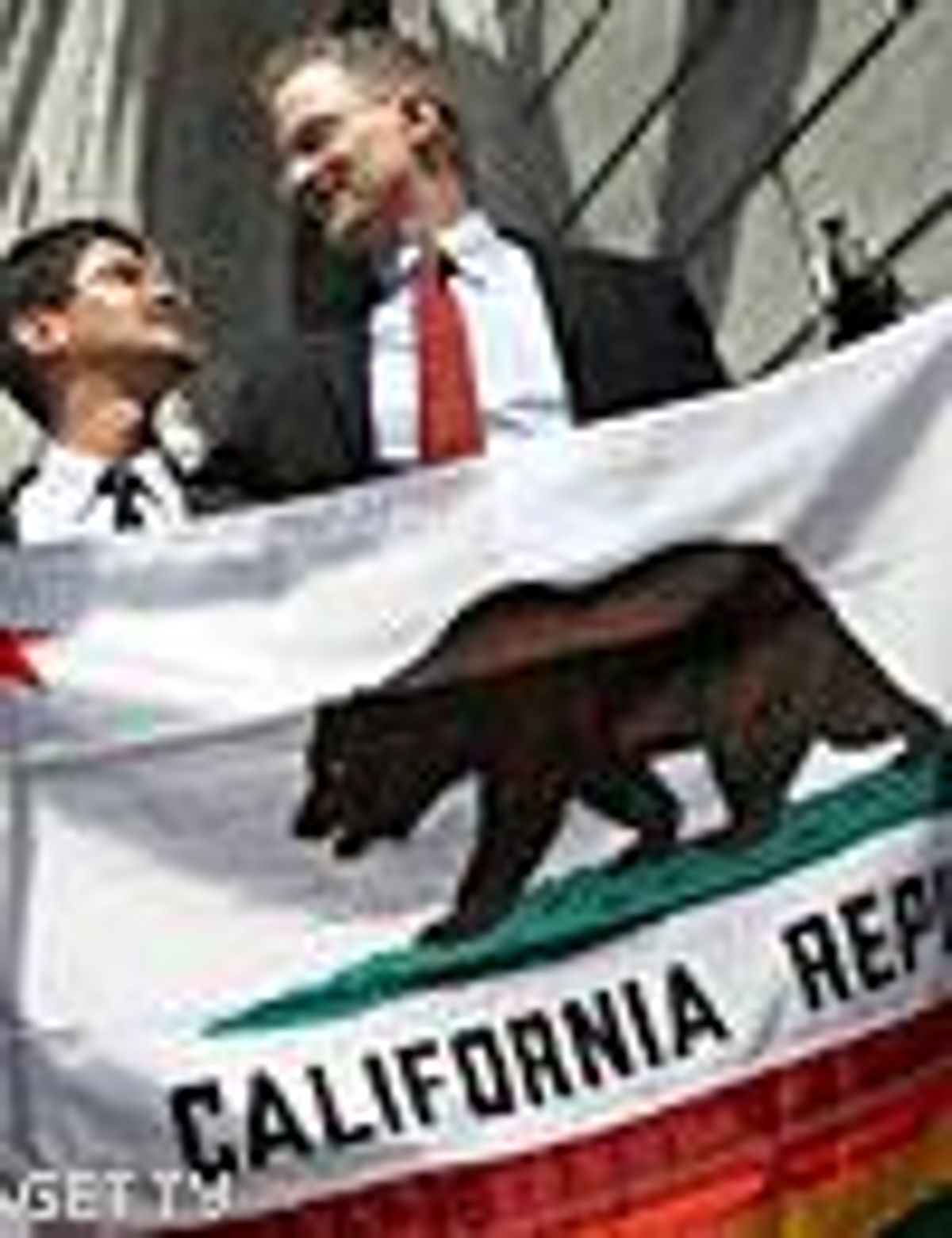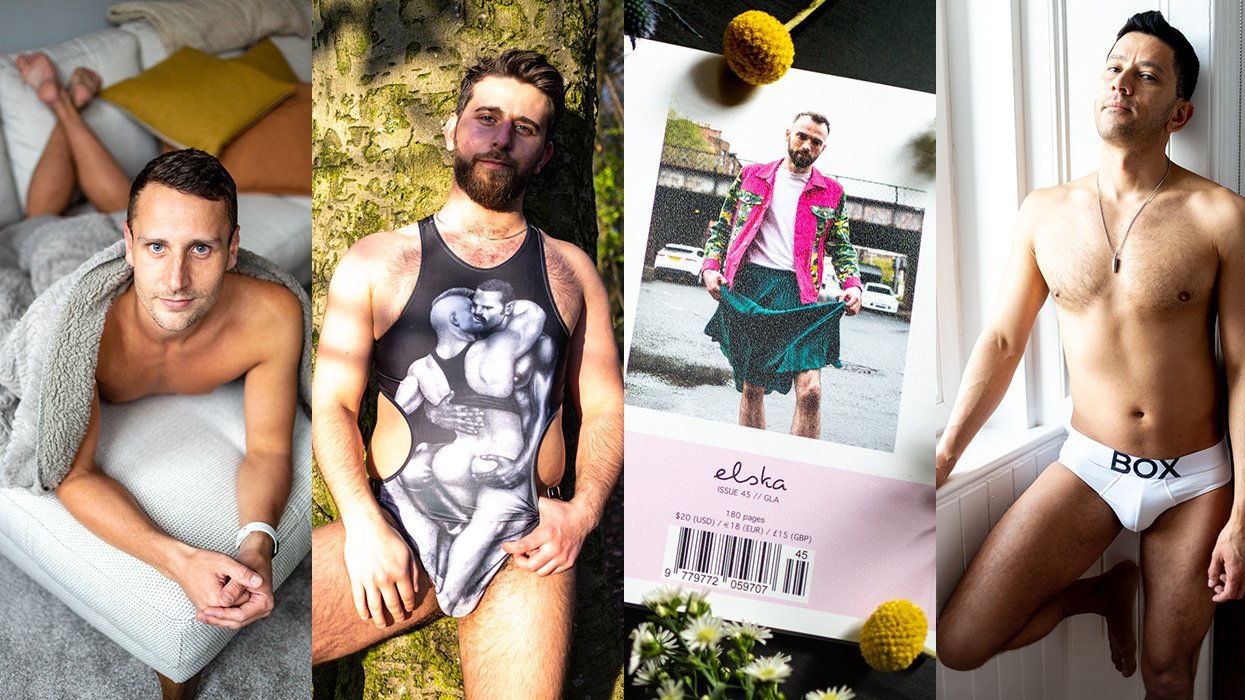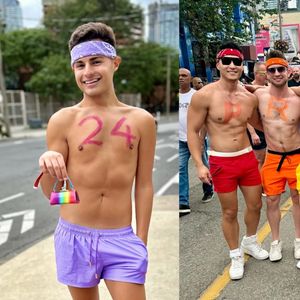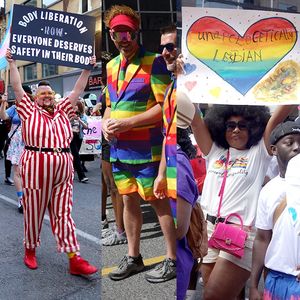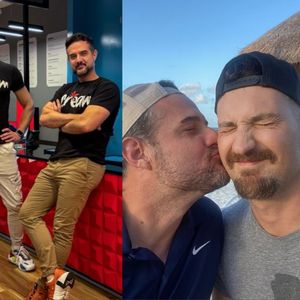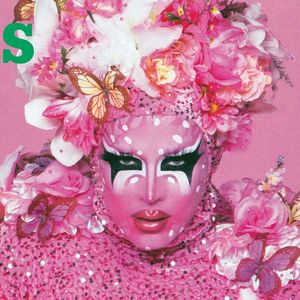Gay and lesbian
couples around California are planning their nuptials
following a refusal by the state's highest court to delay
its decision legalizing same-sex marriage.
The California
supreme court's announcement Wednesday cleared the final
hurdle for same-sex couples in the nation's most populous
state to wed beginning June 17, when state officials
have said counties must start issuing new
gender-neutral marriage licenses.
Judy Appel,
executive director of Our Family Coalition, a San
Francisco-based group that advocates for same-sex
couples with children, said she was thrilled by the
court's refusal to stay the ruling.
''Today is a
great day not only for every lesbian and gay couple who
wants to get married, but for every Californian who believes
in fairness and equal opportunity for all,'' said
Appel, a mother of two who plans to marry her partner
of 16 years in coming months.
Conservative
religious and legal groups had asked the justices to stop
its May 15 order requiring state and local officials to
sanction same-sex unions from becoming effective until
voters have the chance to consider the issue in
November. The justices' decisions typically become final
after 30 days.
An initiative to
ban gay marriage has qualified for the November 4
ballot. Its passage would overrule the court's decision by
amending the state constitution to limit marriage to a
man and a woman.
In arguing for a
delay, the amendment's sponsors predicted chaos if
couples married in the next few months, only to have the
practice halted -- or nullified -- at the ballot box.
The attorneys
general from 11 states had submitted briefs backing that
claim. California does not have a residency requirement or
waiting period for obtaining marriage licenses,
forcing other states to consider whether it would
recognize same-sex marriages from California.
The four justices
who denied the stay request -- three of them appointed
by Republican governors -- were the same judges who joined
in the majority opinion that found withholding
marriage from same-sex couples constituted
discrimination. The three dissenting justices said they
thought a hearing on whether the stay should be granted was
warranted.
Ronald Prentice,
executive director of the coalition sponsoring the
November measure, predicted the court's refusal to put the
brakes on its historic ruling would motivate gay
marriage opponents to vote for the ban.
''Certainly it
was our hope that one or more members of the majority
decision would recognize that they had overstepped their
bounds, and would allow the November vote to speak on
behalf of the state's citizens,'' Prentice said. ''We
are obviously disappointed by their continued
arrogance to overrule the will of the people.''
Glen Lavy, an
attorney for the Alliance Defense Fund, which filed the
leading stay request and is part of a coalition backing the
fall ballot measure, said taking the issue to the
federal courts was not an option because the supreme
court did not give his group legal standing in the
case.
''This was a 4-3
vote for legal chaos,'' Lavy said. ''This refusal to
wait until the constitutional process is played out confirms
that this is kind of agenda-driven.''
Gay rights
advocates had urged the court to let same-sex marriages
begin as quickly as possible, arguing there was no
legal basis for continuing to subject gay couples to
unequal treatment.
''It would be
unprecedented to postpone constitutional rights based on a
speculation of how a political scenario may or may not have
played out,'' said San Francisco city attorney Dennis
Herrera, whose office represented the city in
successfully suing to overturn California's one
man-one woman marriage laws.
California has an
estimated 108,734 same-sex households, according to
2006 U.S. Census figures. The state already offers same-sex
couples who register as domestic partners many of the
legal rights and responsibilities afforded to married
couples, including the right to divorce and to sue for
child support.
In its May 15
ruling, the high court struck down state laws against
same-sex marriage and said domestic partnerships are not
enough.
Backers of the
fall initiative now hope to add California to the list of
26 states that have approved constitutional amendments
banning same-sex marriage. It is unclear whether
marriages performed before the fall election would be
nullified if the amendment passes. Some legal scholars
have said the supreme court might get called on again to
settle that question.
Despite the
uncertainty, hundreds of couples already have scheduled
appointments to obtain marriage licenses at San Francisco
City Hall on June 17 and in the weeks after.
Mayor Gavin
Newsom said the city planned to have extended hours to avoid
''a mass wedding'' and has asked the state for permission to
begin issuing the licenses on June 16.
''We want to
allow for hundreds, if not thousands, of people to come to
San Francisco to start their lives together,'' Newsom said.
(Lisa Leff, AP)
